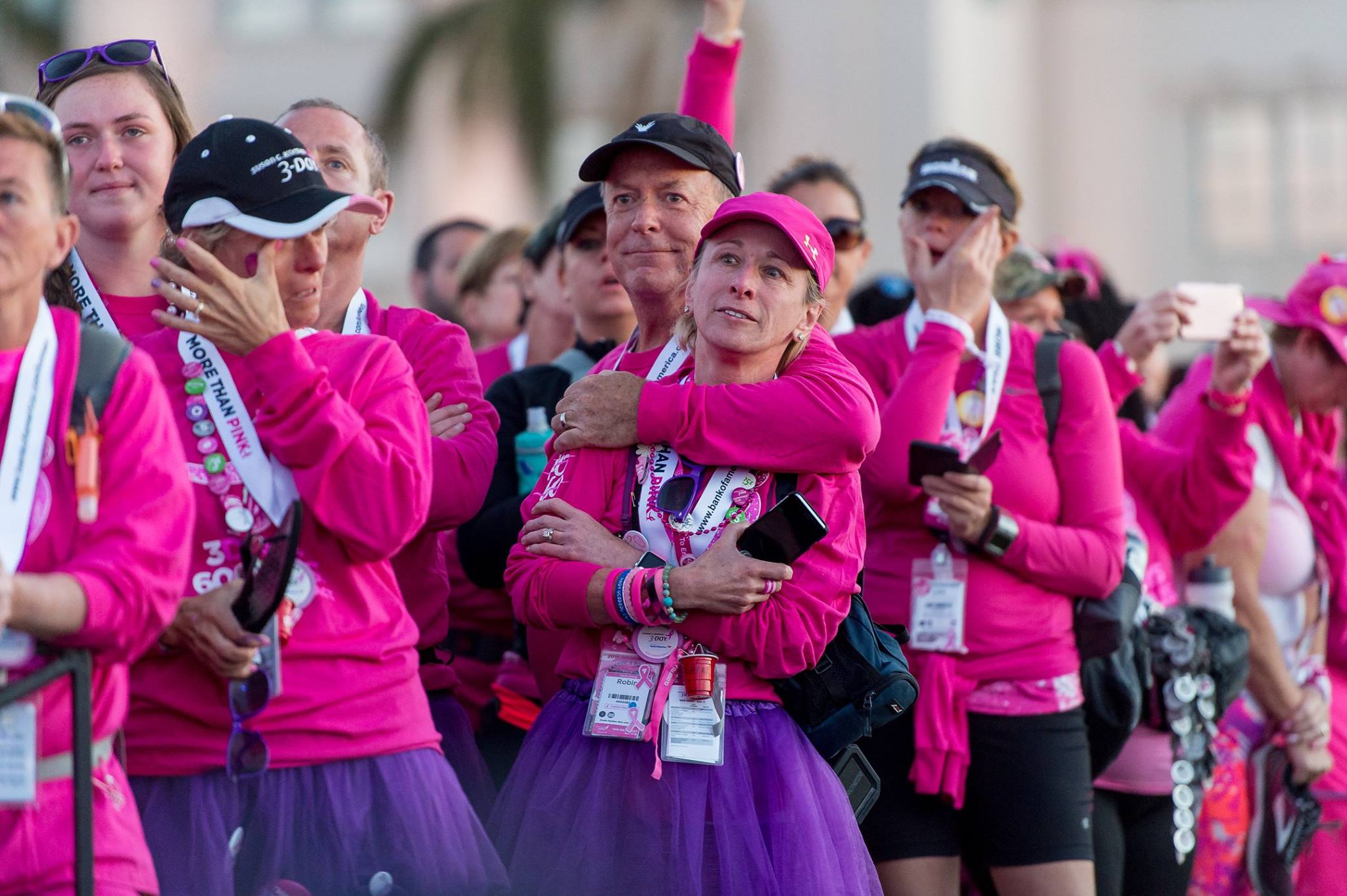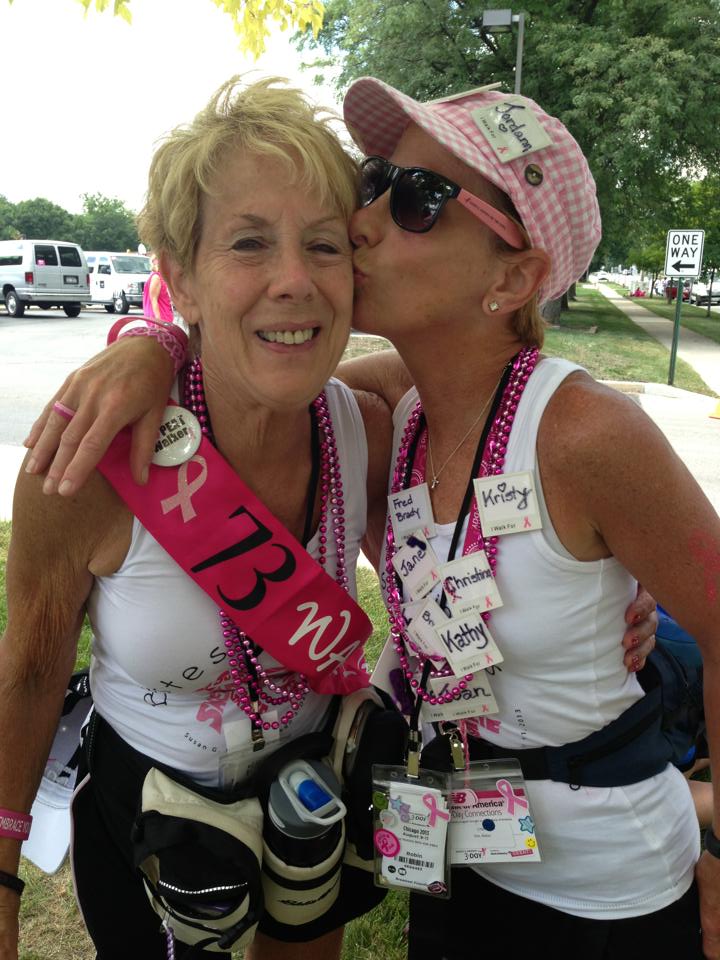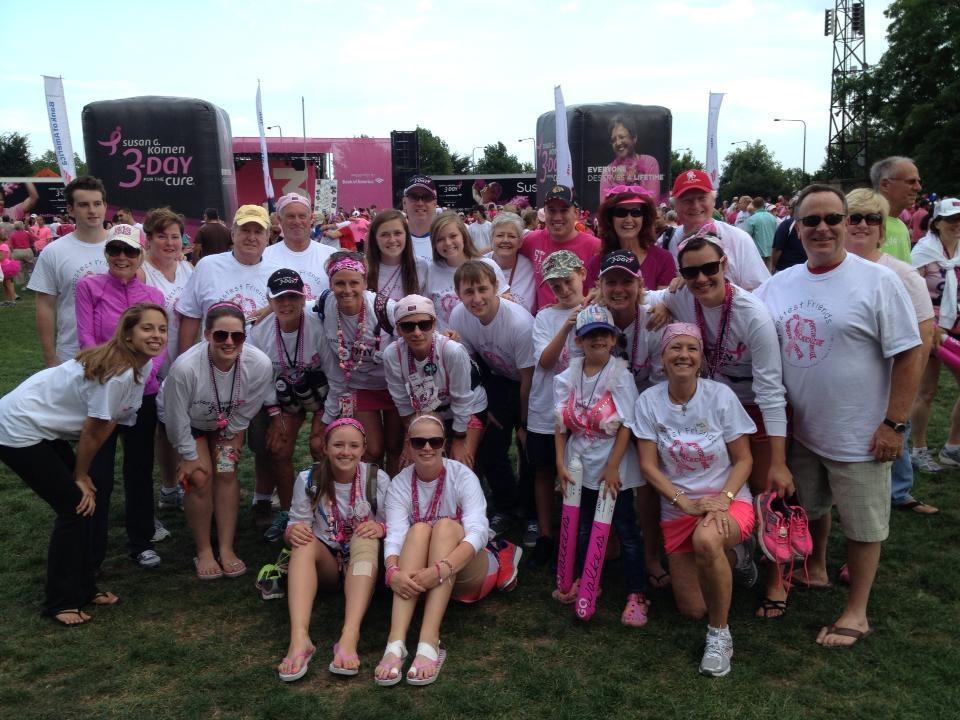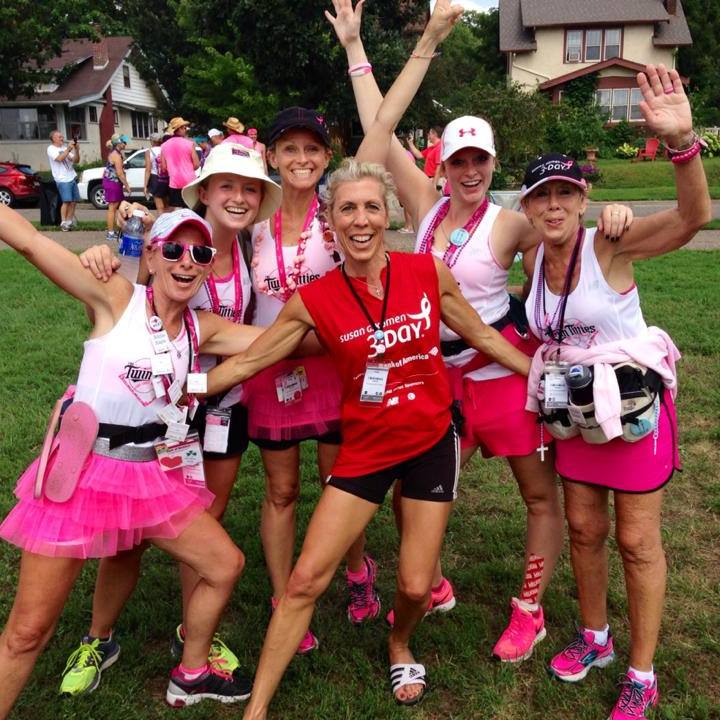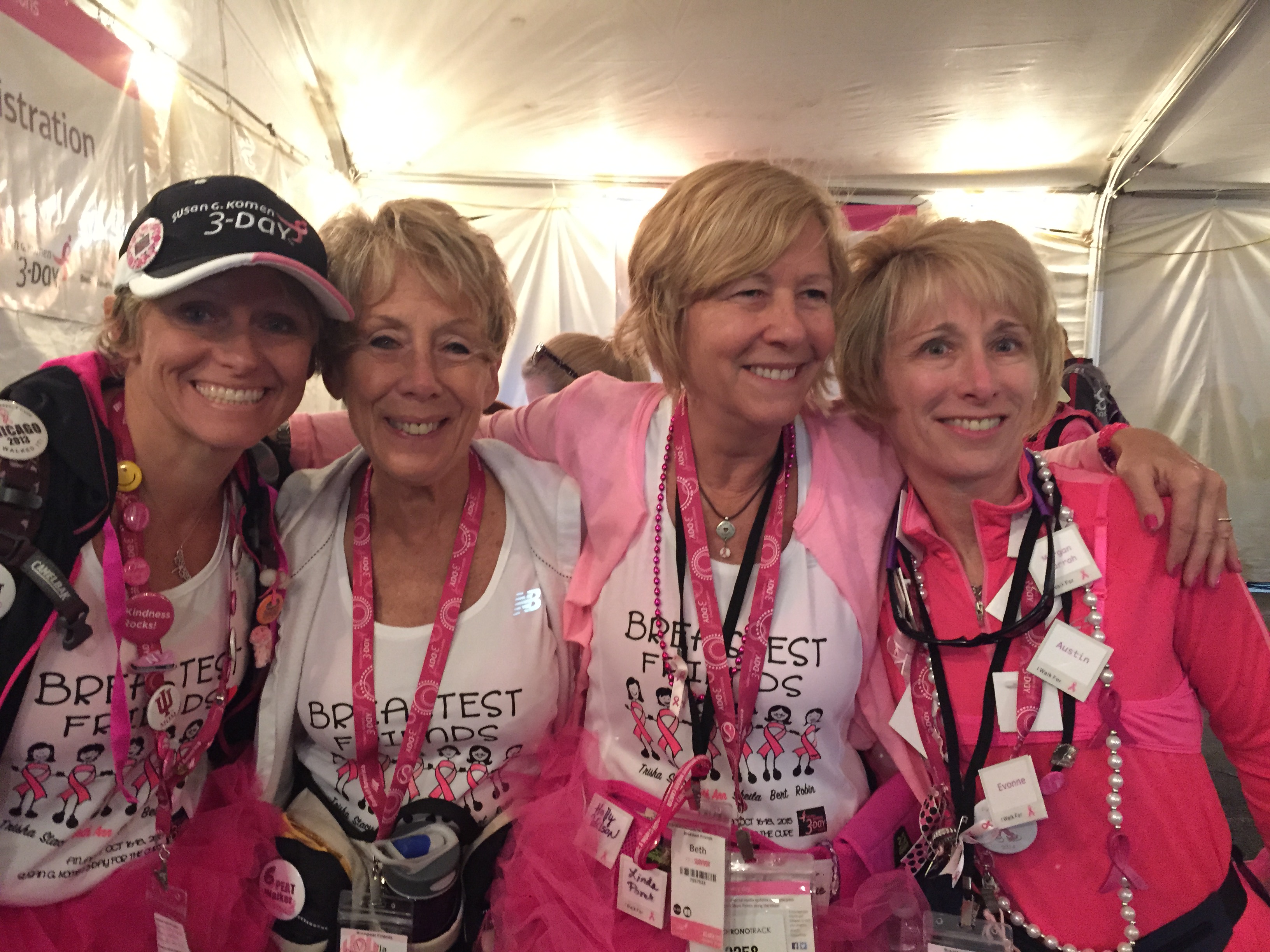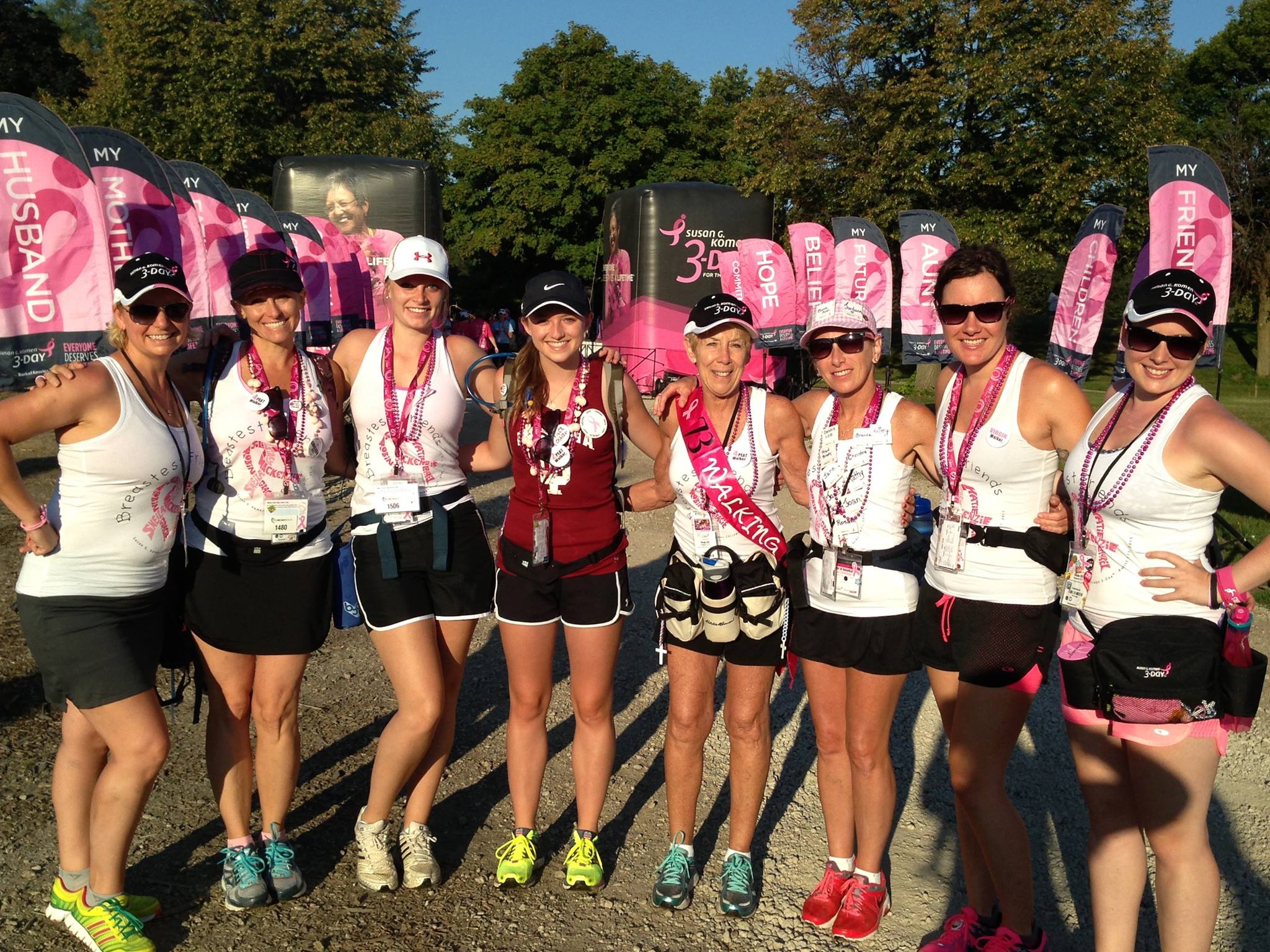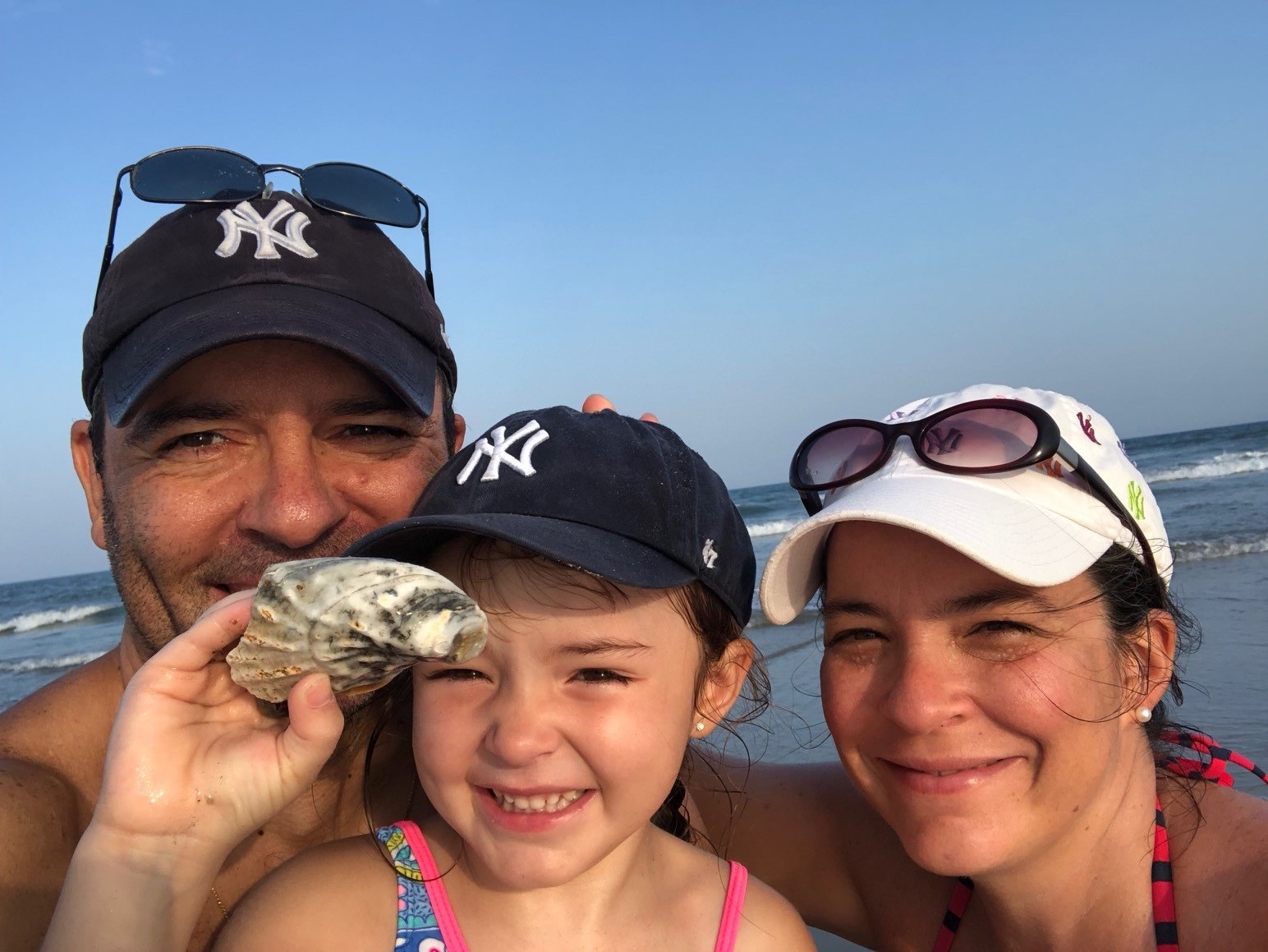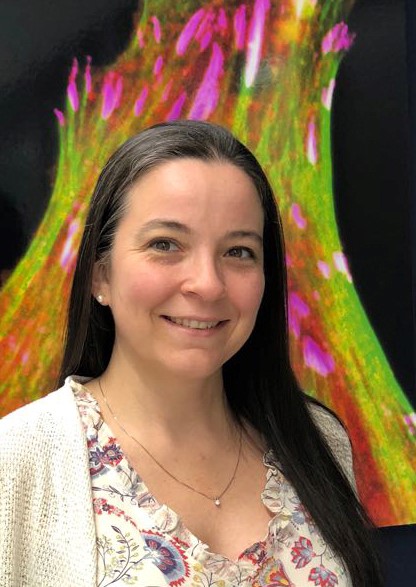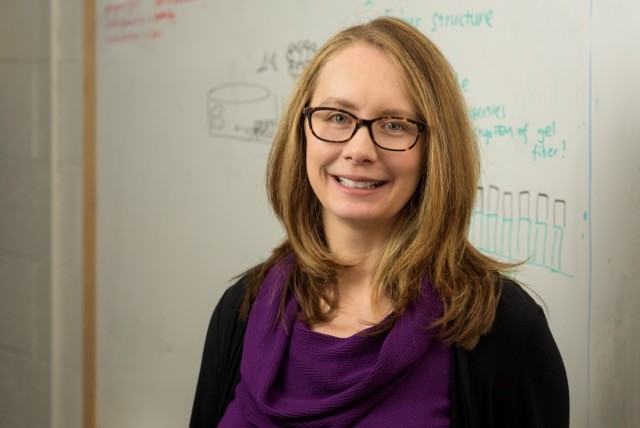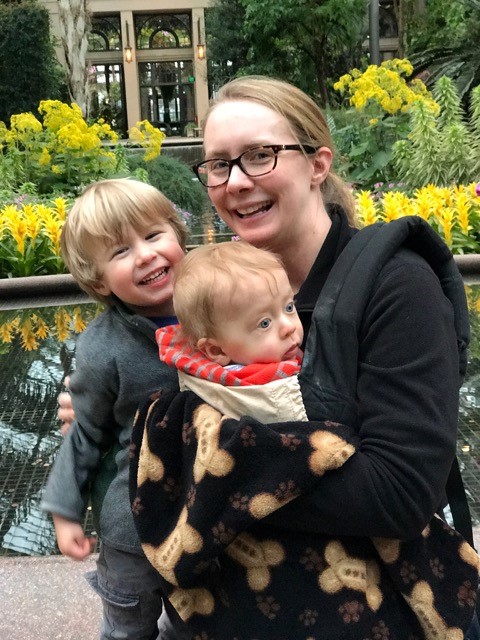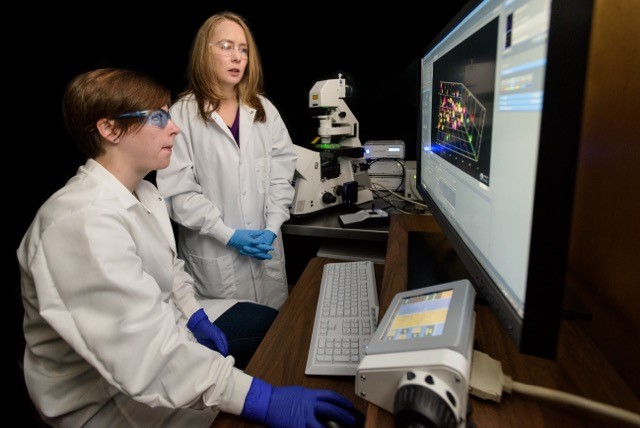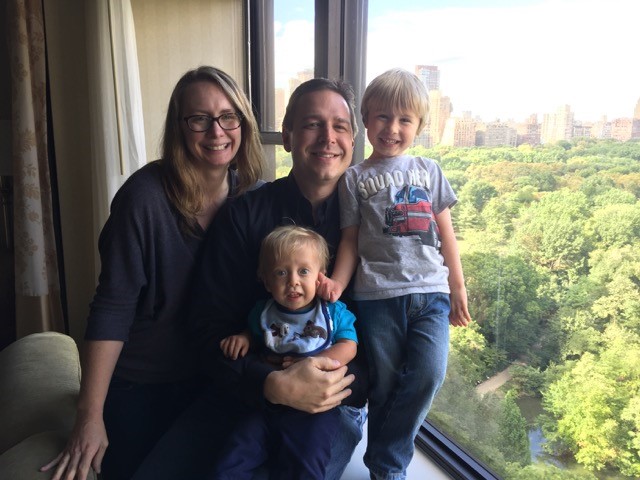Robin Eggert Elm has been walking the 3-Day since 2002, first with her mom and sister, and now with an ever-growing team. Since that time, she has lost family members, endured hardship, and found a new home in Greensboro, Georgia. She has also made a new friend in her neighbor, Dr. Radha Vemuri, an oncologist who has support her 3-Day journey and many other breast cancer charities and research projects for years. Recently, Dr. Vemuri was diagnosed with brain cancer, prompting Robin to reach out to share his story…and her own…with the 3-Day community.
She says that Dr. Vemuri, or Radha to her, has been a constant source of support for her and her family over the years.
“He’s supported me in my 3-Day walks and he’s shared his commitment with me. He was originally from Kalamazoo, which is about 40 minutes from my parents. In 2017, my mom went in for a chest x-ray as they thought she had pneumonia. Once they began talking about other cancers, I called Radha immediately.”
Robin’s mother passed away from meslotheomia in July of that year, after inspiring “dozens of walkers including my sister and me, granddaughters, nieces, cousins, and friends” to join in the 3-Day with her. Robin still walks in her mother’s memory, and with the support of Dr. Vemuri. She shared the story of that journey with us…
And how has Dr. Vemuri supported you and the 3-Day’s mission?
He continually advocates and supports initiatives for breast cancer education.
He says that as a doctor, ‘It is deeply disturbing to me that, in Greene County, more than half the women in the African-American community who are diagnosed with breast cancer will die from breast cancer. The national average for breast cancer mortality is 1-in-5. Our rate is more than twice the national average. That is unacceptable. Through education, screening and getting more women into the healthcare system, we can do much better.’
Radha was also a godsend to our family throughout my mom’s cancer journey. From the early days before her diagnosis through hospice and death, he selflessly gave his time and supported our family.
Why is it so important that people continue to support the 3-Day?
Simply, because we can. I travel all over the country for business. I haven’t met anyone who doesn’t have a breast cancer story. As one of my client’s told me, “I was impressed that you walk, but really didn’t understand it all until my daughter did the walk.” It’s not just writing a donation check. It’s making a commitment. It’s seeing, hearing and experiencing why we need to find a cure.
Tell us some of your fondest 3-Day memories with your family!
The memories are really those of a lifetime. It would be impossible to articulate what our support of Susan G. Komen has meant to our family. We receive so much more than we give. Our entire family, not just the walkers, share their Komen stories. My nieces couldn’t wait until they were old enough to do the walk. When my brother’s triplets were three, they had a lemonade stand “for the cure.” Then, years later when one of their hockey teammate’s mother was diagnosed, they told their story and got everyone to paint pink ribbons on their helmets. My niece started bedazzling bras for all the walkers. Last year, all the guys also had bedazzled bras. My husband likes telling how his came in handy to hold snacks and a small water bottle. I love our family pictures after closing ceremony with a couple dozen family members in matching shirts who cheered us on.
Some other true highlights were:
- At the 2014 Twin Cities walk, we walked for a while with a family. The grandmother, who had done many walks, was being pushed in a wheelchair by her 15-year old grandson, Austin. She had walked with her other grandchildren and wanted to live long enough to walk with him. […] One month to the day later, I lost my own son, also named Austin.
- In 2015 Atlanta, at lunch on Day 3, my mom started talking to a crew member who had dragonfly earrings as dragonflies are an important symbol to our family, representing the cycle of life and death. My mom told her about the loss of my son. Later at Closing Ceremonies, someone tapped my mom on the shoulder. It was the crew member and her husband. She told my mom that each year she finds ‘her person’ but “I hadn’t found my person on this walk until I met you. I want you to have my earrings.” We still have no idea how she found my mom among that massive crowd! My mom kept the earrings on her nightstand. They remained there until she died. Now, my cousin, a survivor, wears them.
- Finally, at the San Diego 2017 Opening Ceremonies, we looked up and saw a rainbow and just knew my mom was with us.
As a long-time veteran, what are your top fundraising tips for the 3-Day?
Tell your story. I walk in honor of someone different each year and interview them for my fundraising letter. I try to find honorees who’ve been impacted differently.
One year, I walked for my mom’s friend’s daughter. She was 15 and lost her mom. She told me, “I grew up with breast cancer. I had no one to talk to. No one I knew had a mom with breast cancer.”
Another year, I walked for a local woman I never met. She had contacted a local charity for support. When I interviewed her, she said, “I never thought this would be me. I work. When I got divorced, I was going through treatment and got dropped from my husband’s insurance. I couldn’t pay my medical expenses and my other bills. I want to fight this, so I can support others.”
In 2018, Robin walked in honor of Dr. Vemuri. She will continue to walk as long as she can, fighting for a cure.
Do you have a 3-Day story like Robin? Do you want to show support for someone who has helped you on your 3-Day journey? Share them with us here!
